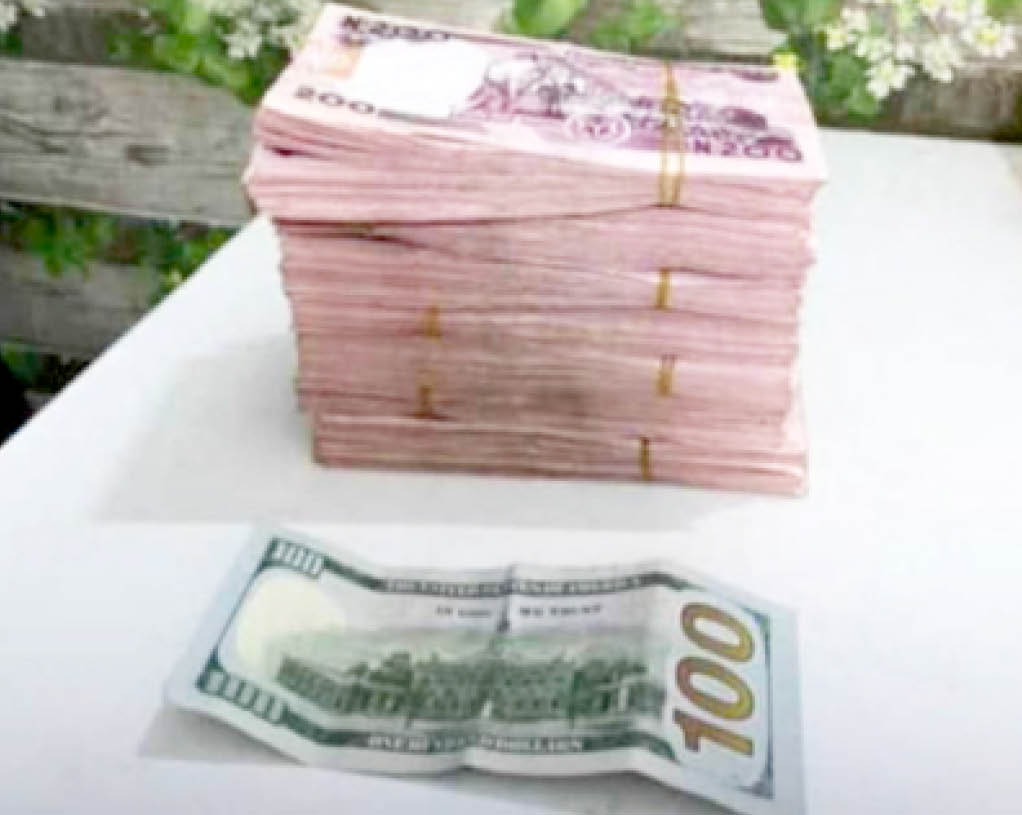The naira appreciated significantly against the dollar throughout March, 2024, gaining over N350 on the back of major foreign exchange (forex) policy, with official figures indicating that the naira closed the month at N1,309/$1 on the last trading day, up from N1,595.11/$1 at the end of February, 2024.
This 21.8 per cent gain pointed to the success of several forex policies, strategies and interventions by the Central Bank of Nigeria (CBN); all aimed at stabilising and strengthening the national currency.
In the parallel market, the naira saw an even more aggressive recovery, improvement from N1,600/$1 in February, to N1,250/$1 in March, representing a 28 per cent gain in one month; highlighting the effectiveness of the measures taken to bridge the gap between the official and unofficial currency markets.
The gains in the official and parallel markets are the largest seen in over five years. Before now, the exchange rate was fixed at about N450/$1 for almost two years and around N380/$1 between 2020 and early 2021.
- SERAP gives Sani, Wike, others ultimatum to account for N5.9trn, $4.6bn loans
- Kebbi imam resigns amid controversy over N500k Ramadan largesse
ABCON attributes gains to restart of sales to BDCs
Speaking on the recent upside, the Association of Bureau de Change Operators of Nigeria (ABCON) said the recall of members into the forex market led to the stability in the exchange rate.
Aminu Gwadabe, ABCON’s president, spoke on significant developments in Nigeria’s FX market in a statement issued yesterday.
He explained that in addition to addressing the $7bn FX backlog and the monetary policy tightening that led to more investment in government instruments, the recall of the BDC operators by the CBN was also a significant move to boost dollar liquidity at the retail end of the market.
He thanked the CBN and other relevant agencies for acknowledging the BDCs as a crucial component of the FX market and an efficient mechanism for transmitting exchange rates in FX management.
The statement reads in part: “The reconsideration of the BDCs into the mainstream foreign exchange market has not only cleared illegal economic behaviours of hoarding, rent-seeking, round tripping and FX holding position, but led to the emergence of exchange rate convergence.
“The stability in the exchange rate has already started to have a positive impact on the prices of goods and services. For instance, the price for international school fees has dropped by 15 per cent; cost of medical tourism has reduced by 20 per cent and airfares for local and international trips dipped by 25 per cent.
“On a more serious note, the positive impacts include heightened confidence of the public in the local currency as it eliminates currency substitution behaviour which hitherto being (sic) adding pressure on our local currency.”
Gwadabe further said the success story was unending, with the naira trading at N1,255/$ on Saturday – which was below the N1,269.765 the BDCs were advised to sell.
He added that, “It is our view that the collaboration between the BDCs, CBN, National Security Adviser (NSA), Economic and Financial Crimes Commission (EFCC), as well as support from the presidency, helped in creating the opportunity for building the foundation of this achievement.”
“Overall, the combination of these actions have induced an atmosphere of public calmness, confidence, hope and liquidity in the markets.
“We call, therefore, on the CBN to continue to calibrate the existing relationship between the BDCs and the apex bank to sustain the success story.”
‘Stable naira will attract more foreign portfolio inflows’
Describing the ongoing market development as revolutionary, Gwadabe said a stable naira would attract more foreign portfolio inflows to the economy.
He explained that prospects for FX earnings were promising, with an increase in Foreign Portfolio Investments (FPI) and inflows exceeding $1.5bn just days after the Monetary Policy Committee (MPC) raised interest rates by 200 basis points.
Gwadabe said increases in FX inflows through the CBN’s monetary tools were aiding to boost foreign reserve accretion, granting the apex bank the power to defend the local currency.
He reiterated ABCON’s commitment to maintaining collaboration with the central bank to ensure that all members benefitted mutually, preventing exclusion and the dominance of the sector by larger entities.

 Join Daily Trust WhatsApp Community For Quick Access To News and Happenings Around You.
Join Daily Trust WhatsApp Community For Quick Access To News and Happenings Around You.

